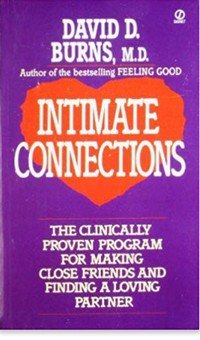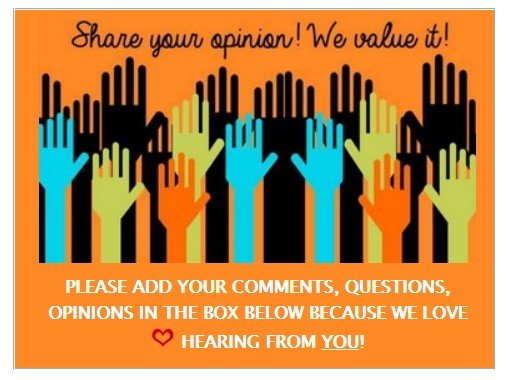Usually I have a long list of things to blog about but for this month’s issue I’ve been drawing a blank. I am not usually stuck for ideas so believe me when I say this has been causing me immense frustration for the last week. So, with that in mind I wondered; what seems to have been coming into my therapy room a lot recently? Boundaries! Bingo! I wish I’d thought of that idea last week……..
I’ve created a few Instagram posts where I discuss the importance of having boundaries and them being essential to our mental health so this post will look at what are they, why we need them and most importantly how can we start to put them in place!
So what is a boundary? A boundary is a limit or a rule we set for ourselves within any relationship; be that with a friend, a partner, family member or even a work colleague. Having healthy boundaries means we can open up to people and share our intimate or vulnerable thoughts, but also means we’re able to say no sometimes. Whenever I discuss boundaries for the first time with a client, I always refer to the bill of human rights and, in my opinion, the most important point on it:
- Freedom of expression – “people should be able to say what they want as long as it does not go against the law or another human right” this includes being able to say no without fear of judgement or retribution.
What does that sentence mean to you? Usually when I mention this to clients it gets a nod of acknowledgement, some prolonged thought and then a response along the lines of “oh that makes sense”. It’s something that can be so easily forgotten but is so vitally important. How healthy is a relationship where you feel you can’t say what you really feel or want to do?
Usually we’d expect our parents to teach us about boundaries when we’re young children through praise and punishment in order for us to develop a sense of right and wrong but also mutual respect. However, that isn’t always possible nor do we each learn the same set of rules! Meeting someone with different boundaries can be difficult to accept or even acknowledge which may cause a relationship to breakdown or produce high levels of conflict.
 |
 |
 |
 |
 |
 |
 |
 |
So why do we need them? The CBT/REBT therapist in me goes back to universal unconditional acceptance; meaning we only upset ourselves if we try to get others to change and not accept them fully for who they are. However, by having boundaries we’re able to let other people know what is OK for us to tolerate and what isn’t. Boundaries are ours alone and can be individual to each person based on our values. Some of them we’ll share with others and some are unique to you; it’d be boring if we were all the same right?!?
If you feel a situation is coming up where you maybe feel coerced into doing something or just really don’t want to do it what do you say? Do you say anything and go along with it? Or do you consciously avoid the situation in order to not have to deal with it? Do you think this works well for you? I am going to go out on a limb and say it’s probably not the healthiest thing to do…. so here is a list of phrases I’ve put together to help you say what you might be feeling but in an emotional healthier way. Feel free to read them aloud or better still find a mirror, or turn your phone camera to selfie mode, and read them aloud to yourself.
- I am not comfortable with this
- Please don’t do that
- I’d rather you didn’t do that
- I don’t want to do that
- This isn’t OK for me
- I’d prefer to do something else
- Maybe another time
- I’ve decided against that
How did you find that? Can you add any more to the list? Of course, it’s much easier to say it to yourself than it is to someone else but as with all new things it takes time & practice; all new habits have to start somewhere.
So now you have a list of things to say, including hopefully some of your own phrases, we can start to think about how you can introduce healthy boundaries into your friendships & relationships. Below is a list of tips & tricks that I talk through with my clients in order to help them introduce healthy boundaries into their lives:
- Know your limits – know what is acceptable to you and what isn’t.
- Know your values – what is important to you and how can you protect it?
- Listen to your emotions – don’t create a state of avoidance, the only person that will feel the resentment is you
- Respect yourself – if you always give into others you’re putting their needs above your own
- Respect others – ensure your actions aren’t at the expense of others, learn to compromise. This isn’t about winning or losing
- Be assertive – this is my favourite as it means you can state your intentions using phrases like we’ve discussed above. You can say no whilst still being respectful to yourself & those around you.
- Think of the long term – Some days you give more, some days you take more. Be aware of the long term view of the relationship so you can create a balance that works for both of you.
Putting boundaries in place doesn’t make you selfish, it means you’re taking an opportunity to put yourself first and do what’s right for you. If you struggle with this and feel you could do with some additional help then please don’t hesitate to get in touch with me to discuss booking an appointment. Change starts today!
Till next month
Lauren x
P.S don’t forget to follow me on Instagram at @laurenstreetcounselling
![]()
How useful was this post?
Click on a star to rate it!
Average rating 4.1 / 5. Vote count: 7
No votes so far! Be the first to rate this post.
Originally posted 2019-10-31 15:30:18.
Tags: boundaries, guest author, Lauren Street
Search this site
Sticky Posts
Regular Columns & Features
Recent Comments
Categories
USEFUL LINKS
Amazon Associate Member
Rex Alexander and REBT Info are participants in the Amazon Services LLC Associates Program, an affiliate advertising program designed to provide a means for sites to earn advertising fees by advertising and linking to amazon.com.
Disclosure
When you buy items using the links on this website, we may get a small commission which keeps me in coffee, which keeps me working, which keeps me providing valuable content for you. Thank you for your continuing support of REBT Info.com. ~Rex
TOS / Terms of Service
Pretty basic stuff: No fussing, no fighting, no cussing, no spamming, no scamming, no blaming, no flaming, no hating, no bating, no trolling, no personal attacks. No pornography (Damn!). The Golden Rule applies. Focus on issues, ideas and principles rather than on personalities and you will fit right in. Please keep your contributions friendly and polite, treat your fellow members and readers with respect and all will be well.
All content and information submitted become the property of REBT Info (REBTinfo.com)
Privacy Policy
PRIVACY POLICY
We at REBT Info value your privacy. Your personal information is secure with us. Secure server software (SSL) encrypts all information you enter before it is sent to us, and all of the customer data we collect is protected against unauthorized access.
We WILL NOT sell, rent, distribute or otherwise share your personal information, including e-mail address, to or with anyone for any reason (except in the extremely rare, unlikely case of demands by duly authorized law enforcement acting strictly in accord with due process).
For more information, please read the long version
Copyright
Copyright © 2012-2024 by Rex Alexander dba REBT Info / http://REBTinfo.com.
All rights reserved. The content of this website or any portion thereof may not be reproduced or used in any manner whatsoever
without the express written permission of the publisher except for the use of brief quotations in a book review.Disclaimer
This website, REBTinfo.com, and others under the REBT Info family are for education, information and entertainment purposes only; are not intended as, nor should be regarded as medical or psychiatric diagnosis, advice or treatment.
By accessing this blog you understand and agree to these conditions, as well as to the other Terms of Service / TOS posted, and which may be updated and amended from time-to-time.
Agreement
By accessing this website blog and related media, you affirm that you have read, understand and agree to our Terms of Service / TOS which may be updated and amended from time-to-time.
This is a public blog
Anything you post may be viewed by the public. Therefore, do not post anything you wish to remain private.

